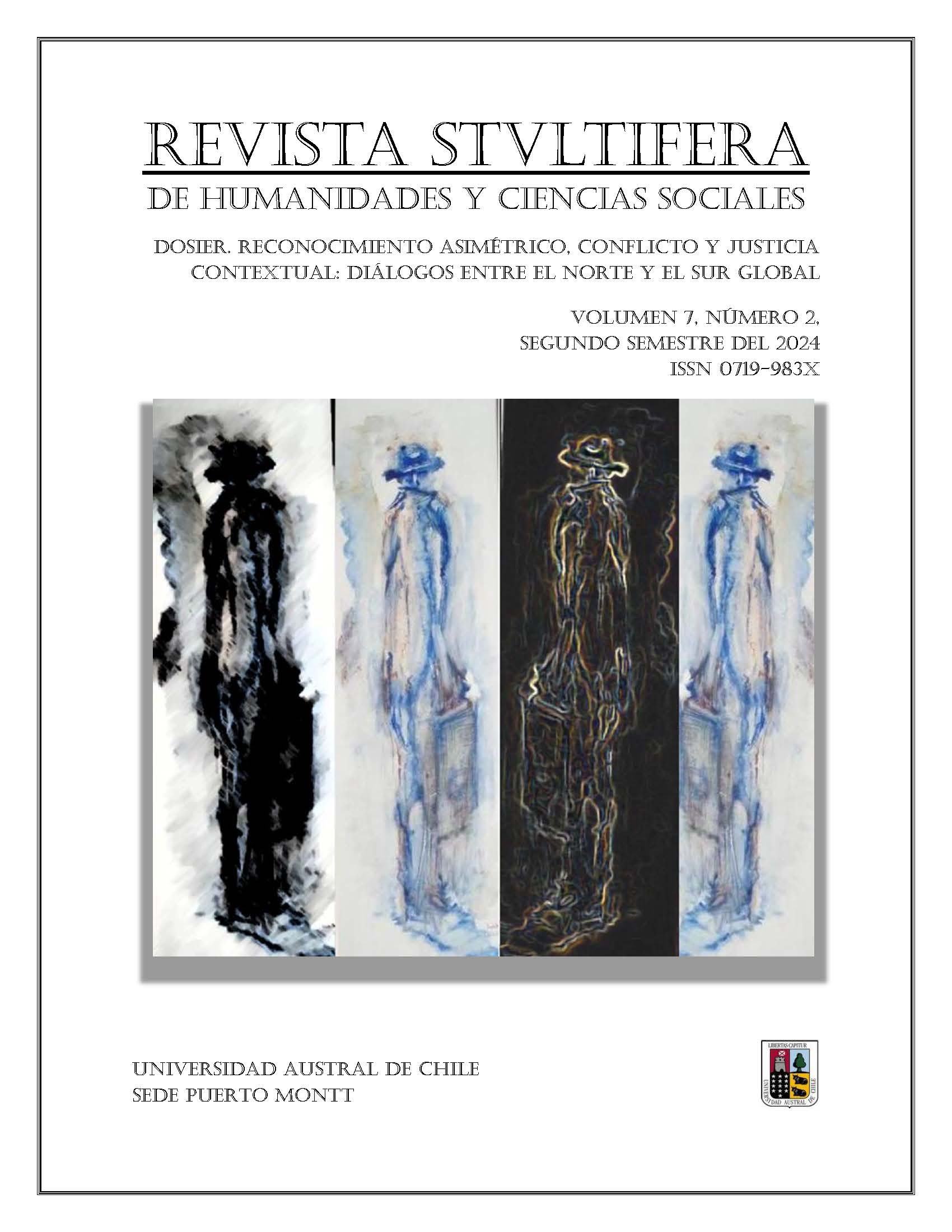Violence and Recognition in Processes of Social Transformation: the Case of the Front Line in the Chilean Social Revolt
Main Article Content
Abstract
In Chile, a citizenry overwhelmed by the inequities of the neoliberal elite has exploded in the largest social revolt since the return to democracy. In this scenario, violence has been the protagonist: that of the police with the abusive use of public force and that exercised by civil society resulting in barricades, looting and destruction of urban real estate. Understood as processes of transformation, in the face of a power that privileges the economic elites, social collectives erupt in civil disobedience. In this sense, the so-called “first line”, a collective confronted with the police, exercises a vindictive violence, risking their criminalization and their own lives in doing so. The hypothesis addressed refers to the relationship between the struggle for social recognition and the subversive action that mobilizes the first line collective in the Chilean revolt; to this end, a look at the social collectives today is presented, to then address and reflect on the paradoxical relationship between violence and recognition. In a third moment, these notions are applied to the context of the first line in the Chilean social revolt.
Article Details

This work is licensed under a Creative Commons Attribution-NonCommercial 4.0 International License.
Usted es libre de compartir (copiar y redistribuir el material en cualquier medio o formato) y adaptar (remezclar, transformar y construir sobre el material). El licenciante no puede revocar estas libertades siempre y cuando usted siga los términos de la licencia.
La licencia se da bajo los siguientes términos:
Atribución: debe dar el crédito adecuado, proporcionar un enlace a la licencia e indicar si se realizaron cambios. Puede hacerlo de cualquier manera razonable, pero no de ninguna manera que sugiera que el licenciante lo respalda a usted o a su uso.
No comercial: no puede utilizar el material con fines comerciales.
Sin restricciones adicionales: no puede aplicar términos legales o medidas tecnológicas que restrinjan legalmente a otros de hacer cualquier cosa que la licencia permita.
References
Agamben, G. (2004) Estado de excepción. Adriana Hidalgo editora.
Althusser, L. (1988). Ideologia y aparatos ideológicos de Estado: Freud y Lacan. Nueva Visión.
Arendt, H. (2006) Sobre la violencia. Alianza Editorial.
Balbontín, C. (2014). Une critique de la constitution sociale de l’identité subjective dans la lutte pour la reconnaissance de G.W.F. Hegel. En: C. Duchene-Lacroix, F. Heidenreich et A. Oster (dirs.), Individualismus -Genealogien der Selbst (Er) Findung, Sammelband Nº 25, Internationalen Zentrums für Kultur- und Technikforschung (IZKT) (pp. 77-87). Universität Stuttgart, Berlin, Lit-Verlag.
Bauman, Z. (2011). Ética posmoderna, en busca de una moralidad en el mundo contemporáneo. Siglo XXI.
Benjamin, W. (1977). Zur Kritik der Gewalt. Gesammelte Schriften II, 1. Suhrkamp.
Butler, J. (2020). La fuerza de la no violencia. Planeta.
Fanon, F. (2001). Los condenados de la tierra. Fondo de Cultura Económica.
Gilligan, C. (1985). La moral y la teoría. Psicología del desarrollo femenino. Fondo de Cultura Económica.
Gutiérrez Recabarren, M. B., Ulloa Molina, J., y Balbontín Gallo, C. (2024). Movimientos sociales de octubre 2019 y el proceso constituyente en Chile: la deuda pendiente. Utopía y praxis latinoamericana, 29(104). https://doi.org/10.5281/zenodo.10501673.
Hardt, M., y Negri, A. (2004). Multitud. Guerra y democracia en la era del Imperio. Random House Mondadori.
Hegel, G. (1973). Fenomenología del Espíritu. Fondo de Cultura Económica.
Honneth, A. (1997). La lucha por el reconocimiento. Por una gramática moral de los conflictos sociales. Grijalbo.
Instituto Nacional de Derechos Humanos (INDH). (2019). Informe anual 2019: Situación de los Derechos Humanos en Chile en el Contexto de la Crisis Social. http://bibliotecadigital.indh.cl/handle/123456789/1701.
Kohlberg, L. (1981). The Philosophy of Moral Development. Moral Stages and the Idea of Justice. Harper & Row Pubs.
La Tercera. (14 de octubre 2022). Especial Estallido: tres años. https://www.latercera.com/etiqueta/especialestallido3anos/#
Oyarzún, P. (2017). Letal e incruenta: Walter Benjamin y la crítica de la violencia. LOM Ediciones.
Piaget, J. (1976). La toma de conciencia. Ediciones Morata.
Renault, E. (2017). L’expérience de l’injustice. Essai sur la théorie de la reconnaissance. La Découverte.
Salas, R., MacAdoo, A., Pauchard, P., Samaniego, M., Balbontín, C., Dupuis, H., y Gutiérrez, M. B. (2021). Entrevista a Emmanuel
Renault y Christian Lazzeri. Revista stultifera,4(2), 121–142. https://doi.org/10.4206/rev.stultifera.2021.v4n2-06.
Salazar, G. (2019) El “reventón social” en Chile: una mirada histórica. CIPER. https://www.ciperchile.cl/2019/10/27/el-reventon-socialen-chile-una-mirada-historica/.
Sartre, J-P, y Cohn-Bendit, D. (1978). Diálogo entre Jean-Paul Sartre y Daniel Cohn-Bendit. En M. Pellegrini (comp.) La imaginación al poder (pp. 39-54). Argonauta.


 https://orcid.org/0000-0002-1933-6116
https://orcid.org/0000-0002-1933-6116